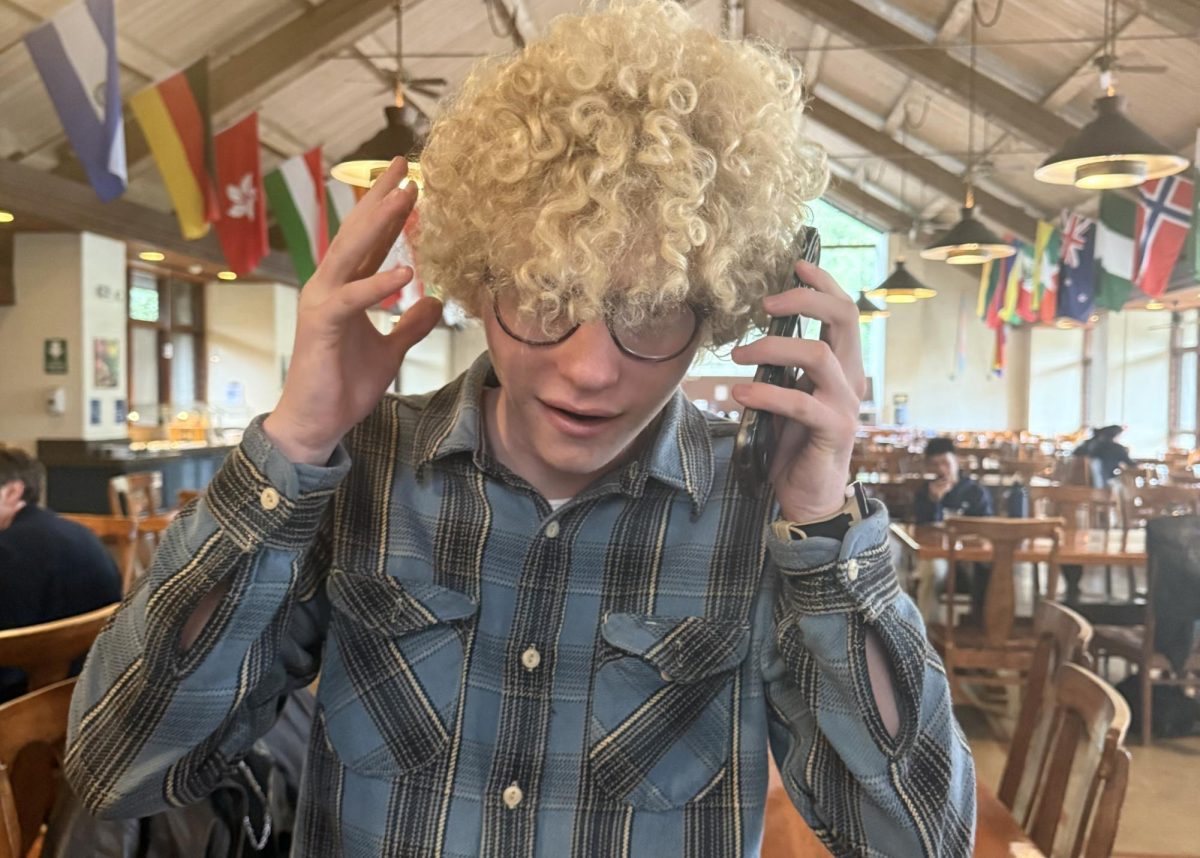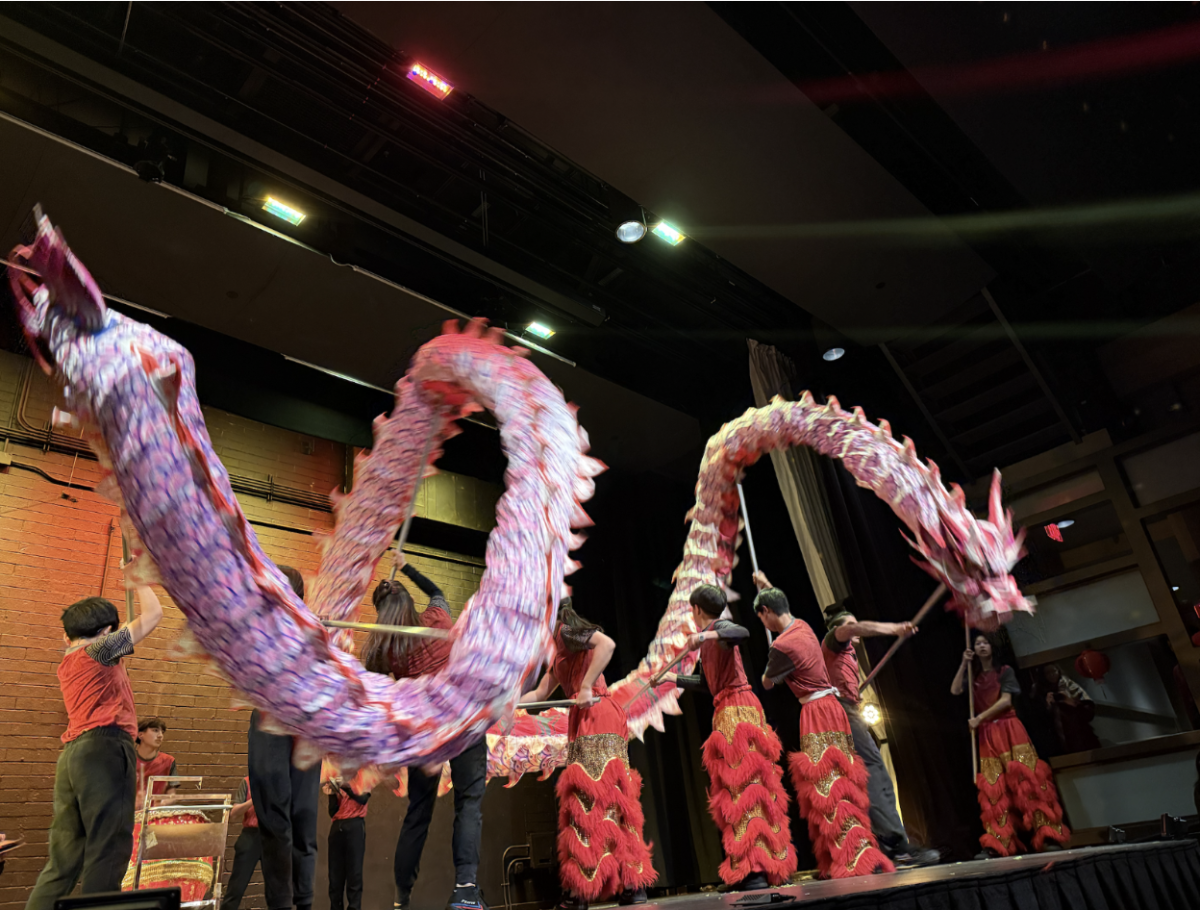Recently, a video viral on the Internet broke the hearts of many Webb students. In the video, giant panda Yaya gnaws on dried bamboo with her ribs clearly visible and hair patchy, reflective of the mistreatment by the Memphis Zoo. Lele, her partner, who was once by her side, had already passed away.
In 2003, as representative animals of China, giant pandas Lele and Yaya began their 10-year-journey in the U.S. at Memphis Zoo in Tennessee. In 2013, the contract was extended to another 10-year, with their return planned on April 7th, 2023. Within this time, Memphis Zoo claimed they had taken good care of the pandas. However, on Feb 2nd, 2023 (two months before their return), the news of Lele’s death had shocked people around the country.
“Pandas mean a lot to the Chinese people,” said Joy Li (‘24) from Shanghai, China. “They only exist in China, so we see them as our national pride. Lele’s death is heartbreaking.”
In early 2022, videos were circulated by netizens on Chinese twitter Weibo, guessing that the survival of the pandas was not optimistic. After Lele’s death was exposed, the Memphis Zoo’s crimes against the pandas were finally revealed.
The bamboo fed at the Memphis Zoo did not meet the feeding standards in China: they were dry and hard, like wood, and was given in extremely small quantities. Shortage of food resources left Yaya and Lele bony. Before his death, Lele begged for food and showed animals’ repetitive stereotypes such as head-knocking and howling, indicating his high mental stress level. These symptoms were now also present in Yaya.
When Yaya and Lele first arrived in the United States, the Memphis Zoo actually dedicated a bamboo forest to them. With the bamboo yield in short supply, the zoo instead chose to sell their bamboo to other countries at a high price. They then opened a fundraising campaign on their official website for people to donate bamboo to Yaya and Lele. Snacks, such as apples or bamboo shoots, were almost never available.
The negligence of the keepers was evident. Likely because of a lack of bathing, Yaya suffered from skin disease. Her hair was sparse, especially the hair on her back falling out in patches. In this regard, Memphis Zoo avoided Yaya’s back and instead only released her front face photos when posting her pictures on social media.
Today, Yaya is 22 years old, or over 80 in human years. The Chinese people are concerned that under this condition, Yaya may not survive until her forecasted return on April 7, 2023, let alone if Memphis Zoo does not release the panda on time. Chinese people in the U.S. protested and opened an online petition channel to help Yaya return to China. People also casted screens in Times Square in an attempt to bring more attention to the situation. International students spontaneously went to the Memphis Zoo to station for Yaya’s side and monitor the daily actions of the zookeepers.
However, more Chinese Webb students plunged into the heat of the online discussion likely because of location restrictions.
“I [mostly] see online protests,” Jamie Zeng (‘23) said. “I think it is because we are less involved in this situation since it basically depends on the zoo and China’s actions.”
Students all expressed their sadness about this incident. Amy Wang (‘24) not only felt unfortunate for Yaya, but also for the phenomenon of leasing Pandas to other countries.
“I know most countries are taking good care of our pandas, like Fubao in Korea and Meixiang in Japan,” Amy said. “But I don’t think it is a very humane thing to do because the pandas also have five senses and develop emotional attachment just like humans. I feel sad that they are used as gifts to the other countries because they are symbolic to China.”
On the contrary, Annie Huang (‘24) saw no harm in panda diplomacy and rather believed the Memphis Zoo facilitated this tragedy.
“Renting out pandas is a means of showing friendship,” Annie said. “The problem is that the [Memphis] zoo is not a very prosperous place, and I think they don’t have enough funding. But it was them who asked for pandas, and this result is quite disgraceful.”
“I think [panda diplomacy] is beneficial for China in terms of international presence,” said Joy, sharing a similar opinion. “I am happy that people around the world can appreciate the cuteness of Pandas, but they are actually very endangered. [The Memphis Zoo is] destroying the efforts China had made to protect the pandas and destroying our trust in other zoos and even the nation.”
“I think the whole zoo is problematic,” said Catherine Shen (‘25), who was also aware of other animals’ condition in the Memphis Zoo. “The entire zoo needs to be reorganized, including the work of the staff and the attitude of the executives.”
Even though the zoo claimed that they will send Yaya home on time, Webb students are generally suspicious about the zoo’s integrity for different reasons.
“Various media platforms are just stopping me from seeing the whole picture,” Amy said.
Amidst the confusion of public opinion reported, students speculated about the return of Yaya.
“I don’t think the zoo can send Yaya back on time,” Annie said. “It involves a lot of formalities, especially since one of the pandas passed away. But I think the Memphis Zoo will ensure Yaya’s survival because there are many eyes on the matter now.”
More people showed their expectation for Yaya’s healthy return.
“I hope she can survive, taking her home is the hope” Joy said. “But whether or not that will happen, nobody knows.”
Lele’s death also drew Chinese people’s attention to the pandas around the world. It was reported that the panda family in the National Zoo in Washington was also surviving in poor conditions, and some people are currently speaking out for them as well.
After being away from home 20 years, Lele’s life spurred attention for the change to Yaya and animal cruelty in zoos. However, the pandas’ futures remain uncertain.
“We will fight for the treatment that Yaya deserve.” said Joy, along with the determination of all Chinese students.















